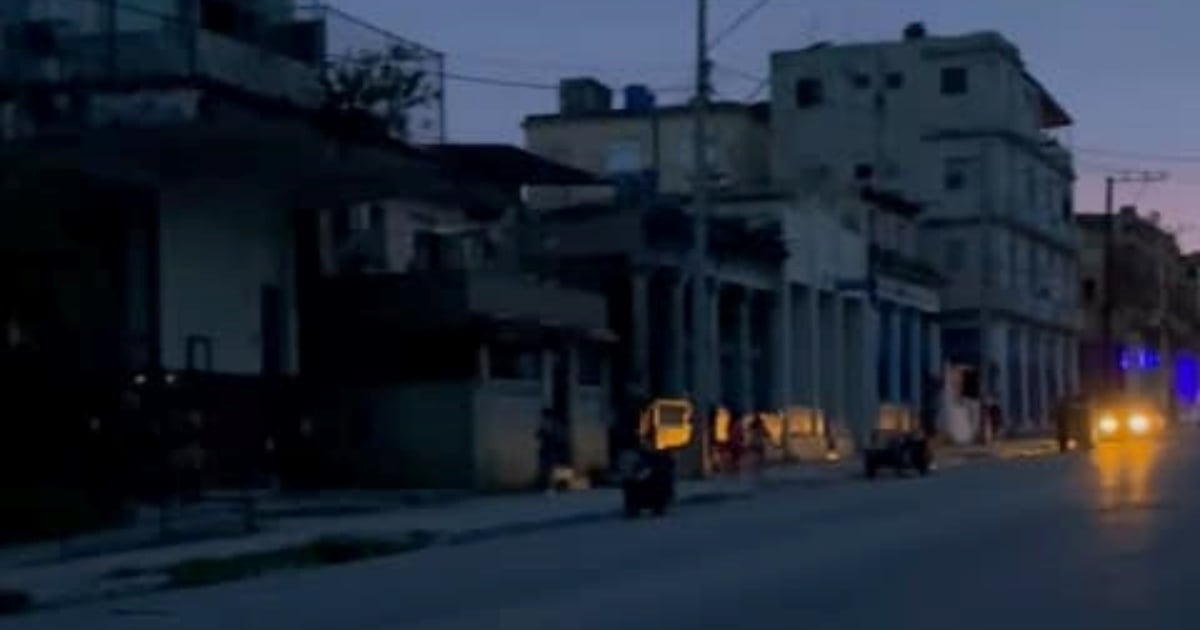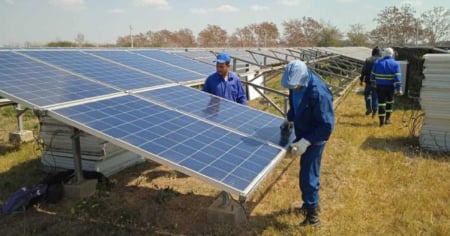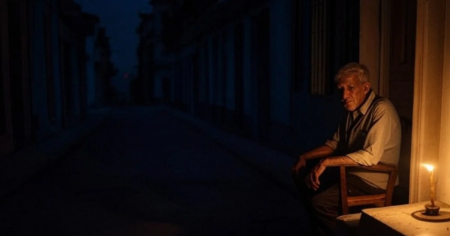
Related videos:
More than 70% of the population in Cuba remains without electricity since the collapse of the national system that occurred on Friday night, which plunged the entire country into darkness.
A survey conducted by on its social media reveals that 72% of participants are still without electricity, in contrast to just 28% who have had their service restored.

The survey involved more than 2,400 people, of whom 1,778 remain in the dark in their homes.
The citizens' discontent is palpable in the comments collected in the survey, where residents from various provinces expressed their frustration over the lack of immediate solutions and the uncertainty regarding when the service will be restored.
"Colón, Matanzas, since the day before yesterday at around 7 p.m. we have been without power"; "Pinar is in blackout"; "Playa has neither light nor water since Friday"; "Total blackout in Centro Habana"; "Playa, Miramar, they haven't restored it yet"; "Antilla, Holguín, is in total blackout" and "In blackout Songo, Santiago province," reported some users.
In the latest update on the restoration of the National Electric System (SEN), engineer Lázaro Guerra Hernández reported that it has been successfully interconnected from Havana to Guantánamo, with the incorporation of Pinar del Río and Artemisa still pending, as they continue to operate with microsystems and will be linked after the commissioning of the Antonio Guiteras thermoelectric plant.
The province of Santiago de Cuba partially restored its connection to the SEN this Sunday at 5:27 a.m., although the majority of its residents remain without service.
At this moment, only 43.6 MW are available for electric service, benefiting a total of 127,842 customers, so the situation remains critical.
In Havana, areas in the municipalities of Boyeros, Guanabacoa, Centro Habana, Marianao, Cerro, 10 de Octubre, La Lisa, Playa, San Miguel del Padrón, and Arroyo Naranjo now have electric service, meeting a demand of 68 MW, which represents about 19% of the customers in the capital.
Frequently asked questions about the electric crisis in Cuba
How many people in Cuba are still without electricity after the recent blackout?
72% of the population in Cuba still lacks electricity after the collapse of the national electrical system that occurred on Friday night. This has led to a massive blackout affecting various provinces of the island.
What is the main cause of the blackout in Cuba?
The blackout in Cuba was caused by a failure at a substation in the suburbs of Havana. This situation has left approximately 10 million people without electricity and has been one of the most severe in recent years.
What have been the repercussions of the blackout on the daily lives of Cubans?
The blackout has severely affected the daily life of Cubans, impacting access to water, food preservation, and communications. The refrigeration of food has been compromised, worsening the existing food crisis, and basic services have been interrupted, increasing frustration among the population.
What actions are the authorities taking to restore electricity in Cuba?
The authorities, through the Electric Union, are working on reconnecting the "microsystems" with the main generating plants. However, they have not provided a clear timeline for the total restoration of service, which has created a growing atmosphere of discontent among the population.
Filed under:






